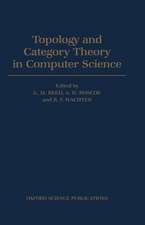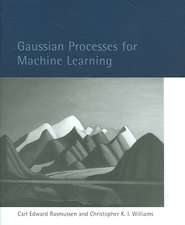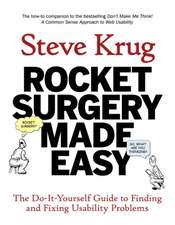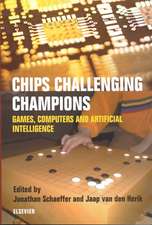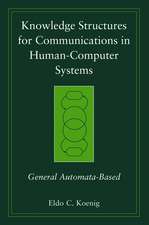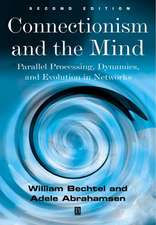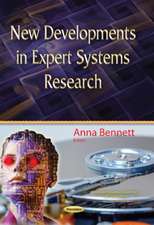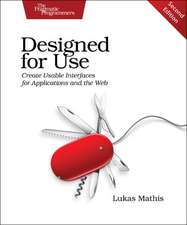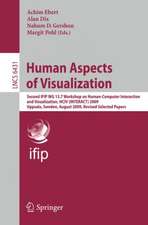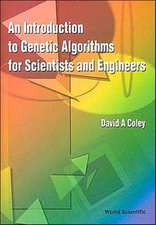Text, Speech and Dialogue: 13th International Conference, TSD 2010, Brno, Czech Republic, September 6-10, 2010.Proceedings: Lecture Notes in Computer Science, cartea 6231
Editat de Petr Sojka, Aleš Horak, Ivan Kopecek, Karel Palaen Limba Engleză Paperback – 30 aug 2010
| Toate formatele și edițiile | Preț | Express |
|---|---|---|
| Paperback (2) | 353.00 lei 43-57 zile | |
| Springer Berlin, Heidelberg – 30 aug 2010 | 662.48 lei 22-36 zile | |
| Springer Berlin, Heidelberg – aug 2012 | 353.00 lei 43-57 zile |
Din seria Lecture Notes in Computer Science
- 20%
 Preț: 1061.55 lei
Preț: 1061.55 lei - 20%
 Preț: 307.71 lei
Preț: 307.71 lei - 20%
 Preț: 438.69 lei
Preț: 438.69 lei - 20%
 Preț: 645.28 lei
Preț: 645.28 lei -
 Preț: 410.88 lei
Preț: 410.88 lei - 15%
 Preț: 580.46 lei
Preț: 580.46 lei - 17%
 Preț: 427.22 lei
Preț: 427.22 lei - 20%
 Preț: 596.46 lei
Preț: 596.46 lei -
 Preț: 381.21 lei
Preț: 381.21 lei - 20%
 Preț: 353.50 lei
Preț: 353.50 lei - 20%
 Preț: 1414.79 lei
Preț: 1414.79 lei - 20%
 Preț: 309.90 lei
Preț: 309.90 lei - 20%
 Preț: 583.40 lei
Preț: 583.40 lei - 20%
 Preț: 1075.26 lei
Preț: 1075.26 lei - 20%
 Preț: 310.26 lei
Preț: 310.26 lei - 20%
 Preț: 655.02 lei
Preț: 655.02 lei - 20%
 Preț: 580.93 lei
Preț: 580.93 lei - 20%
 Preț: 340.32 lei
Preț: 340.32 lei - 15%
 Preț: 438.59 lei
Preț: 438.59 lei - 20%
 Preț: 591.51 lei
Preț: 591.51 lei - 20%
 Preț: 649.49 lei
Preț: 649.49 lei - 20%
 Preț: 337.00 lei
Preț: 337.00 lei -
 Preț: 449.57 lei
Preț: 449.57 lei - 20%
 Preț: 607.39 lei
Preț: 607.39 lei - 20%
 Preț: 1024.44 lei
Preț: 1024.44 lei - 20%
 Preț: 579.30 lei
Preț: 579.30 lei - 20%
 Preț: 763.23 lei
Preț: 763.23 lei - 20%
 Preț: 453.32 lei
Preț: 453.32 lei - 20%
 Preț: 575.48 lei
Preț: 575.48 lei - 20%
 Preț: 585.88 lei
Preț: 585.88 lei - 20%
 Preț: 825.93 lei
Preț: 825.93 lei - 20%
 Preț: 763.23 lei
Preț: 763.23 lei - 17%
 Preț: 360.19 lei
Preț: 360.19 lei - 20%
 Preț: 1183.14 lei
Preț: 1183.14 lei - 20%
 Preț: 340.32 lei
Preț: 340.32 lei - 20%
 Preț: 504.57 lei
Preț: 504.57 lei - 20%
 Preț: 369.12 lei
Preț: 369.12 lei - 20%
 Preț: 583.40 lei
Preț: 583.40 lei - 20%
 Preț: 343.62 lei
Preț: 343.62 lei - 20%
 Preț: 350.21 lei
Preț: 350.21 lei - 20%
 Preț: 764.89 lei
Preț: 764.89 lei - 20%
 Preț: 583.40 lei
Preț: 583.40 lei -
 Preț: 389.48 lei
Preț: 389.48 lei - 20%
 Preț: 341.95 lei
Preț: 341.95 lei - 20%
 Preț: 238.01 lei
Preț: 238.01 lei - 20%
 Preț: 538.29 lei
Preț: 538.29 lei
Preț: 662.48 lei
Preț vechi: 828.09 lei
-20% Nou
Puncte Express: 994
Preț estimativ în valută:
126.77€ • 132.69$ • 105.51£
126.77€ • 132.69$ • 105.51£
Carte disponibilă
Livrare economică 10-24 martie
Preluare comenzi: 021 569.72.76
Specificații
ISBN-13: 9783642157592
ISBN-10: 3642157599
Pagini: 608
Ilustrații: XIV, 593 p. 120 illus.
Greutate: 0.89 kg
Ediția:2010
Editura: Springer Berlin, Heidelberg
Colecția Springer
Seriile Lecture Notes in Computer Science, Lecture Notes in Artificial Intelligence
Locul publicării:Berlin, Heidelberg, Germany
ISBN-10: 3642157599
Pagini: 608
Ilustrații: XIV, 593 p. 120 illus.
Greutate: 0.89 kg
Ediția:2010
Editura: Springer Berlin, Heidelberg
Colecția Springer
Seriile Lecture Notes in Computer Science, Lecture Notes in Artificial Intelligence
Locul publicării:Berlin, Heidelberg, Germany
Public țintă
ResearchCuprins
Invited Papers.- Parsing and Real-World Applications.- Knowledge for Everyman.- Evolution of the ASR Decoder Design.- Text.- Encoding Event and Argument Structures in Wordnets.- Lexical-Conceptual Relations as Qualia Role Encoders.- Towards Disambiguation of Word Sketches.- Towards an N-Version Dependency Parser.- Advanced Searching in the Valency Lexicons Using PML-TQ Search Engine.- These Nouns That Hide Events: An Initial Detection.- Can Corpus Pattern Analysis Be Used in NLP?.- Extracting Human Spanish Nouns.- Semantic Duplicate Identification with Parsing and Machine Learning.- Comparison of Different Lemmatization Approaches through the Means of Information Retrieval Performance.- Evaluation of a Sentence Ranker for Text Summarization Based on Roget’s Thesaurus.- Real Anaphora Resolution Is Hard.- Event-Time Relation Identification Using Machine Learning and Rules.- Question Answering for Not Yet Semantic Web.- Automatic Acquisition of Wordnet Relations by Distributionally Supported Morphological Patterns Extracted from Polish Corpora.- Study on Named Entity Recognition for Polish Based on Hidden Markov Models.- Semantic Role Patterns and Verb Classes in Verb Valency Lexicon.- Opinion Mining by Transformation-Based Domain Adaptation.- Improving Automatic Image Captioning Using Text Summarization Techniques.- Perplexity of n-Gram and Dependency Language Models.- Analysis of Czech Web 1T 5-Gram Corpus and Its Comparison with Czech National Corpus Data.- Borda-Based Voting Schemes for Semantic Role Labeling.- Towards a Bank of Constituent Parse Trees for Polish.- Coverage-Based Methods for Distributional Stopword Selection in Text Segmentation.- Using TectoMT as a Preprocessing Tool for Phrase-Based Statistical Machine Translation.- Automatic SentimentAnalysis Using the Textual Pattern Content Similarity in Natural Language.- Speech.- Correlation Features and a Linear Transform Specific Reproducing Kernel.- Automatic Detection and Evaluation of Edentulous Speakers with Insufficient Dentures.- Diagnostics for Debugging Speech Recognition Systems.- Automatic Lip Reading in the Dutch Language Using Active Appearance Models on High Speed Recordings.- Towards the Optimal Minimization of a Pronunciation Dictionary Model.- Multimodal Emotion Recognition Based on the Decoupling of Emotion and Speaker Information.- Listening-Test-Based Annotation of Communicative Functions for Expressive Speech Synthesis.- Czech HMM-Based Speech Synthesis.- Using Syllables as Acoustic Units for Spontaneous Speech Recognition.- Embedded Speech Recognition in UPnP (DLNA) Environment.- Estonian: Some Findings for Modelling Speech Rhythmicity and Perception of Speech Rate.- Using Gradient Descent Optimization for Acoustics Training from Heterogeneous Data.- Recovery of Rare Words in Lecture Speech.- Enhancing Emotion Recognition from Speech through Feature Selection.- Collection and Analysis of Data for Evaluation of Concatenation Cost Functions.- Emotion Recognition from Speech by Combining Databases and Fusion of Classifiers.- Emologus—A Compositional Model of Emotion Detection Based on the Propositional Content of Spoken Utterances.- Automatic Segmentation of Parasitic Sounds in Speech Corpora for TTS Synthesis.- Adapting Lexical and Language Models for Transcription of Highly Spontaneous Spoken Czech.- Fast Phonetic/Lexical Searching in the Archives of the Czech Holocaust Testimonies: Advancing Towards the MALACH Project Visions.- CORPRES.- Hybrid HMM/BLSTM-RNN for Robust Speech Recognition.- Some Aspects of ASR Transcription BasedUnsupervised Speaker Adaptation for HMM Speech Synthesis.- Online TV Captioning of Czech Parliamentary Sessions.- Adaptation of a Feedforward Artificial Neural Network Using a Linear Transform.- Gender-Dependent Acoustic Models Fusion Developed for Automatic Subtitling of Parliament Meetings Broadcasted by the Czech TV.- Parallel Training of Neural Networks for Speech Recognition.- Design and Implementation of a Bayesian Network Speech Recognizer.- Special Speech Synthesis for Social Network Websites.- Robust Statistic Estimates for Adaptation in the Task of Speech Recognition.- A Priori and A Posteriori Machine Learning and Nonlinear Artificial Neural Networks.- Posterior Estimates and Transforms for Speech Recognition.- Dialogue.- A Multimodal Dialogue System for an Ambient Intelligent Application in Home Environments.- Integrating Aggregation Strategies in an In-Home Domain Dialogue System.- A Methodology for Learning Optimal Dialog Strategies.- The Structure of a Discontinuous Dialogue Formed by Internet Comments.- Using Knowledge about Misunderstandings to Increase the Robustness of Spoken Dialogue Systems.- Linguistic Adaptation in Semi-natural Dialogues: Age Comparison.- Automatic Speech Recognition Based on Multiple Level Units in Spoken Dialogue System for In-Vehicle Appliances.- Dialogue System Based on EDECÁN Architecture.- Integration of Speech and Text Processing Modules into a Real-Time Dialogue System.- Client and Speech Detection System for Intelligent Infokiosk.- Prototype of Czech Spoken Dialog System with Mixed Initiative for Railway Information Service.- An NLP-Oriented Analysis of the Instant Messaging Discourse.- Expressive Gibberish Speech Synthesis for Affective Human-Computer Interaction.
Caracteristici
Fast-track conference proceedings State-of-the-art research Up-to-date results
Textul de pe ultima copertă
This book constitutes the refereed proceedings of the 15th International Conference on Text, Speech and Dialogue, TSD 2012, held in Brno, Czech Republic, in September 2012.
The 82 papers presented together with 2 invited talks were carefully reviewed and selected from 173 submissions. The papers are organized in topical sections on corpora and language resources, speech recognition, tagging, classification and parsing of text and speech, speech and spoken language generation, semantic processing of text and speech, integrating applications of text and speech processing, machine translation, automatic dialogue systems, multimodal techniques and modeling.
The 82 papers presented together with 2 invited talks were carefully reviewed and selected from 173 submissions. The papers are organized in topical sections on corpora and language resources, speech recognition, tagging, classification and parsing of text and speech, speech and spoken language generation, semantic processing of text and speech, integrating applications of text and speech processing, machine translation, automatic dialogue systems, multimodal techniques and modeling.


